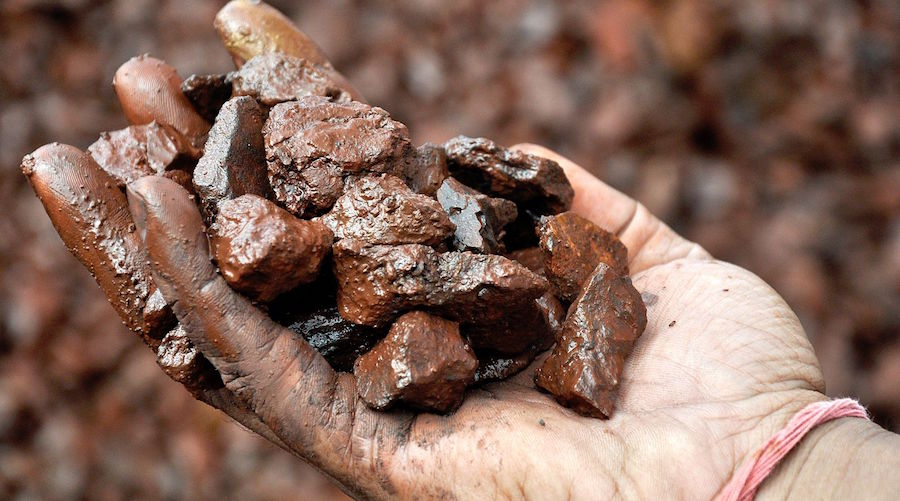China’s iron ore futures push hits speed bump as prices stagnate

Contracts held by investors in China’s iron ore futures have fallen to the lowest in more than three years, and trading volumes have nearly halved since May, when foreign companies were first allowed to trade directly.
The slump in volumes in China’s second “internationalised” futures contract comes amid stagnant iron ore prices, and shows how the market remains in the hands of local speculators, who are quick to abandon slow-moving markets.
“The biggest players in the iron ore futures market are not the physical traders. They are people who would try any futures market where there’s opportunity to make money,” said a Shanghai-based trader.
The Dalian Commodity Exchange opened its iron ore derivative contract to foreign investors to increase volumes and as part China’s bid to boost its clout overpricing of one of its major commodity imports, making it the second such contract after Shanghai oil futures.
However, open interest – the number of outstanding contracts held by traders and a gauge of liquidity – fell to 854,298 lots on Monday, the lowest since March 2015 and down from a May high of 2.4 million lots.
Monthly trading volumes at the world’s most traded iron ore contract fell to 34 million lots in August from 60.1 million lots in May.
“Iron ore prices have been really flat in recent months. Therefore industrial investors have less hedging demand, while speculators have less interest to invest,” Wang Bing, an official for the Dalian exchange, told Reuters citing industry research.
PRICES, INTEREST FLAT
Iron ore has missed out on the wild moves that pushed Chinese steel prices to seven-year peaks in August and coke prices to record highs, as Beijing clamps down on production as part of its war on smog.
Spot iron ore prices <.IO62-CNO=MB> have been trapped between $63 and $70 a tonne since March amid plentiful supply and weaker demand for low-grade material. “Investors cut their positions due to lower volatility, which means less chance to speculate,” said a manager for futures trading at Jiangsu Shagang Group, the biggest private-owned steel mill in China and an active trader.
At the far smaller iron ore contract on the Singapore Exchange, which market participants say is mostly used for hedging, open interest held at around 1.2 million contracts in May, June and July. Trading volumes have slipped from above 1 million contracts in May to just below 1 million in June and July, exchange data showed.
Still, more than 50 foreign companies have started trading the Dalian iron ore futures contract, Wang Fenghai, exchange chief executive, told an industry conference last week.
And the proportion of institutional investors in open contracts has risen by 10 percentage points to 42.2 percent since May, said Wang, the exchange’s official.
Other foreign companies are taking a wait and see attitude.
“We’re not decided yet. We need to watch the futures market and transaction volumes,” said Tatsushi Shigemori, manager of iron ore and steelmaking resources at the Beijing office of Japanese trading firm Itochu Corp.
(Reporting by Manolo Serapio Jr. in MANILA and Muyu Xu in BEIJING; editing by Richard Pullin).
{{ commodity.name }}
{{ post.title }}
{{ post.date }}




Comments